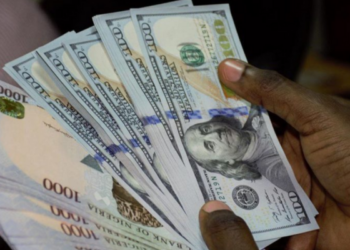The ongoing invasion of Ukraine by Russia saw no respite this week, dragging the global market through its murky path. The S&P 500 has dipped by over 10% since its 2022 peak, while the DJIA is headed for its fifth straight week of losses. Elsewhere, the yield on the U.S. 10-year Treasury note has floated back above 2%, shrugging the risk-off impact of the Russia-Ukraine conflict and turning its focus to the soaring rate of inflation, as the recently released U.S. consumer price index (CPI) for February provided a reminder of the untamed price trend in the world’s largest economy.
The U.S. Labor Department’s Bureau of Labor Statistics revealed that inflation in February inched up again, printing at 7.9% year-on-year, staying slightly ahead of a 7.8% market expectation, and outpacing the 7.5% yearly headline rate recorded in the preceding month. On a monthly basis, the CPI grew by 0.8%, outpacing a 0.7% projection. The core CPI, which excludes volatile food and energy prices, rose by 6.4% yearly and 0.5% monthly, falling in line with expectations. Decoupling February’s inflation data, monthly changes in food, energy, and shelter costs remained key drivers in the period under review, while used car and truck prices eased. On the policy end, the four-decade-high inflation rate is expected to prompt the Federal Reserve to commence monetary policy normalization, with the announcement of the first series of interest rate hikes anticipated in the coming week.
On the local front, data from the Central Bank of Nigeria revealed that foreign investor appetite for the Nigerian financial market continues to worsen, as foreign portfolio investments (FPIs) slumped for the second year in a row, recording a year-on-year decline of 34.30% to total US$3.39 billion in 2021. Compared to the pre-pandemic performance of 2019, FPIs for 2021 fell by 79.30%. Essentially, inflation, insecurity, and exchange rate instability have been the long-term sponsors of the waning interest of foreign investors in the Nigerian market, and it is likely we see election fears join the pack of FPI deterrents for this year.
Money Markets
System liquidity was bolstered by an OMO repayment early in the week, but the settlement of the mid-week PMA lowered the liquidity level towards the end of the week. Nonetheless, the Open Buy Back (OBB) and Overnight (O/N) rates each dipped by 8.83% to 4.50% and 5.00%, respectively.
Despite an anticipated bond coupon and treasury bill maturity totaling N130.73 billion, we see interbank rates expanding at the end of the coming week, on the back of the retail FX auction.
Treasury Bills
The treasury bills market was quiet for most of the week, as activity was steered towards the mid-week PMA. Average benchmark yield remained unchanged at 3.52%.
The DMO sold N236.53 billion worth of notes against N94.00 billion offered at its NTB auction today. The 91-day, 182-day & 364-day notes were allotted at 1.75%, 3.28%, and 4.10%, respectively. Compared to the previous auction, rates on the 91-day, 182-day, and 364-day notes fell by 49bps, 2bps, and 25bps, respectively.
We expect the market to trade tepidly next week.
Bond Market
The local bond market was slightly mixed this week, but the aggressive cherry-picking seen on select maturities weighed on the overall performance. Hence, average benchmark yield declined by 17bps to 10.39%.
We expect to see a slight bullish bias next week, supported by the bond coupon payment falling due.
Eurobond Market
The Eurobond market started the week on a bearish note, but sentiment improved later into the week, drawing support from elevated crude oil prices. Average benchmark yield fell by 17bps to 7.83%, week on week.
We expect the market to continue getting support from elevated crude oil prices, albeit staying susceptible to jitters stemming from the Russia-Ukraine conflict.
FX Market
The Naira appreciated against the US Dollar by 4bps to $1/₦416.50 at the Investors and Exporters FX Window this week.
Equities Market
The equity market resumed its uptrend this week, with gains recorded in three of the five trading days of the week. At the close of the market today, the benchmark index rose by 0.36% week on week, to close at 47,437.48 points. Year-to-Date return settled at 11.05%, while the Market Capitalisation stood at ₦25.57 trillion. Similarly, investor sentiment as measured by the market breadth closed positive at 1.03x on the back of 34 advancers and 33 decliners.
Volume and value traded advanced by 103.69% and 0.31%, week-on-week, respectively. The most traded stocks by volume were FCMB (962.71 million units), UNITYBNK (528.49 million units) and FBNH (124.06 million units), while FCMB (₦3.59 billion), GTCO (₦3.10 billion) and ZENITHBANK (₦2.45 billion) topped the value chart for the week.
We expect to see some mixed sentiments next week, as the activities of profit-takers collude with that of bargain hunters.




















